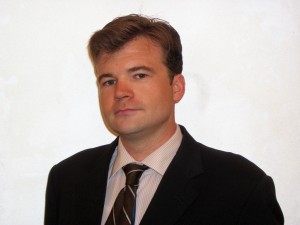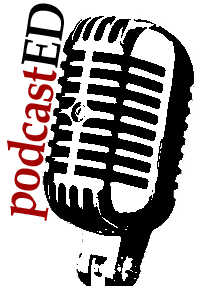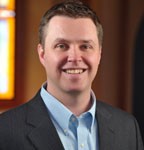 Charter schools took a page from Catholic schools when they arrived in the 1990s and began their expansion – character development, solid discipline, a no-excuses approach to success for low-income kids. But now it's Catholic schools, struggling with declining enrollment (in part because of competition from charters), that should borrow good ideas from charters, the author of a new report says.
Charter schools took a page from Catholic schools when they arrived in the 1990s and began their expansion – character development, solid discipline, a no-excuses approach to success for low-income kids. But now it's Catholic schools, struggling with declining enrollment (in part because of competition from charters), that should borrow good ideas from charters, the author of a new report says.
Sean Kennedy, a visiting fellow at the Lexington Institute, points to how high-performing charter schools have embraced data and technology to better differentiate teaching, including use of “blended learning” models that have both improved student performance and reduced cost. “They’ve really invested in data,” Kennedy, a product of Catholic schools, said in the redefinED podcast below. “And that’s something that, unfortunately, for various cultural and just simply resource reasons, Catholic schools have shied away from.”
Kennedy says despite the funk they’re in, Catholic schools can more nimbly embrace promising trends than other education sectors and again stand out. They don’t have the bureaucratic or union entanglements of traditional public schools, and they still have the faith and character-building components in their favor.
“I’m very optimistic,” Kennedy said. Catholic school educators “often take huge pay cuts from what they would get in public schools. They often work much longer hours. And they love what they do. So if it can be presented to them in a way that this is going to benefit both their teaching and their students directly, I think teachers and administrators in Catholic education are at a special advantage to grab a hold of this data movement and really run with it.”
Kennedy also said vouchers and tax credit scholarships can be crucial in Catholic school reform efforts, particularly with Hispanic students. A project is now underway in the Tampa Bay area with two Catholic schools that accept tax credit scholarships and the Notre Dame ACE Academies, which aims to revitalize Catholic education. “There’s fewer and fewer kids in inner city areas being served by high quality Catholic schools, as these Catholic school business models kind of collapse in on themselves. And that’s a tragedy,” Kennedy said. “With the growing Hispanic population, there’s even greater need to serve these families.”
Catholic schools used to be neighborhood schools. Many of them served immigrant familes. But since 2000 alone, more than 1,700 have closed in the United States, leaving voids in communities and diminishing school choice options for families who could use them now more than ever. In an effort to change that, the University of Notre Dame is leading a partnership that aims to improve the quality of Catholic schools, particularly for low-income, Hispanic families.
 The university's ACE Academies program began two years ago in Tucson, Arizona and is now rolling out at two schools in Tampa Bay (St. Joseph in Tampa and Sacred Heart in Pinellas Park). In this redefinED podcast, program director Christian Dallavis notes two important statistics: 1) two thirds of practicing Catholics in the U.S. who are under the age of 35 are Hispanic, and 2) only about 50 percent of Hispanic students graduate from high school in four years.
The university's ACE Academies program began two years ago in Tucson, Arizona and is now rolling out at two schools in Tampa Bay (St. Joseph in Tampa and Sacred Heart in Pinellas Park). In this redefinED podcast, program director Christian Dallavis notes two important statistics: 1) two thirds of practicing Catholics in the U.S. who are under the age of 35 are Hispanic, and 2) only about 50 percent of Hispanic students graduate from high school in four years.
"We see the future of the church is on pace to be kind of radically undereducated," Dallavis said. But "we also have a solution in that we know Catholic schools often put kids on a path to college in ways that they don't have other opportunities to do so."
It's no coincidence the program came to Arizona and Florida. Both states have large Hispanic populations. Both offer tax credit scholarships to low income students.
"They provide a mechanism that allows Catholic schools and other faith-based schools to sustain their legacy of providing extraordinary educational opportunities to low-income families, immgrant communities, minority children, the people on the margins," Dallavis said. "We see the tax credit as really providing the opportunity to allow the schools to thrive going into the future."
But make no mistake. This effort isn't about quantity. The Notre Dame folks know in this day and age, school quality, whether public or private, is essential - and they're looking to beef up everything from curriculum to leadership to professional development. Their goal for the kids: College and Heaven. Enjoy the podcast.